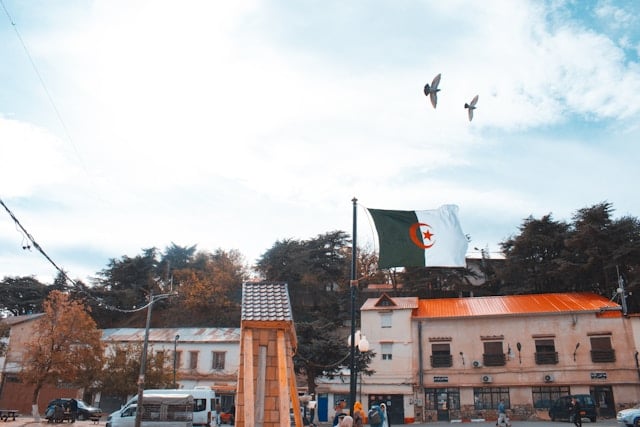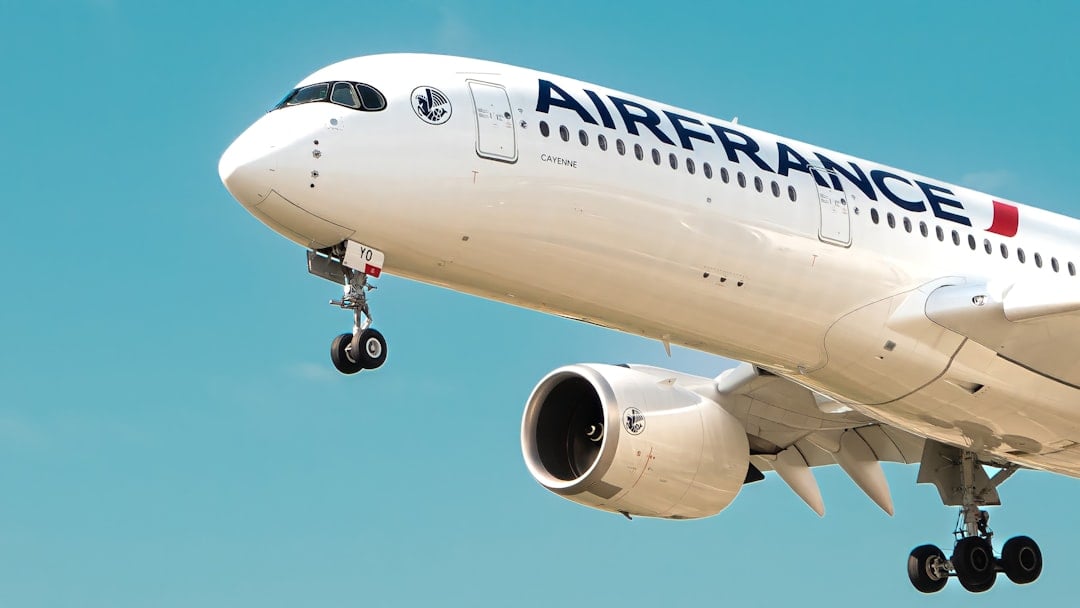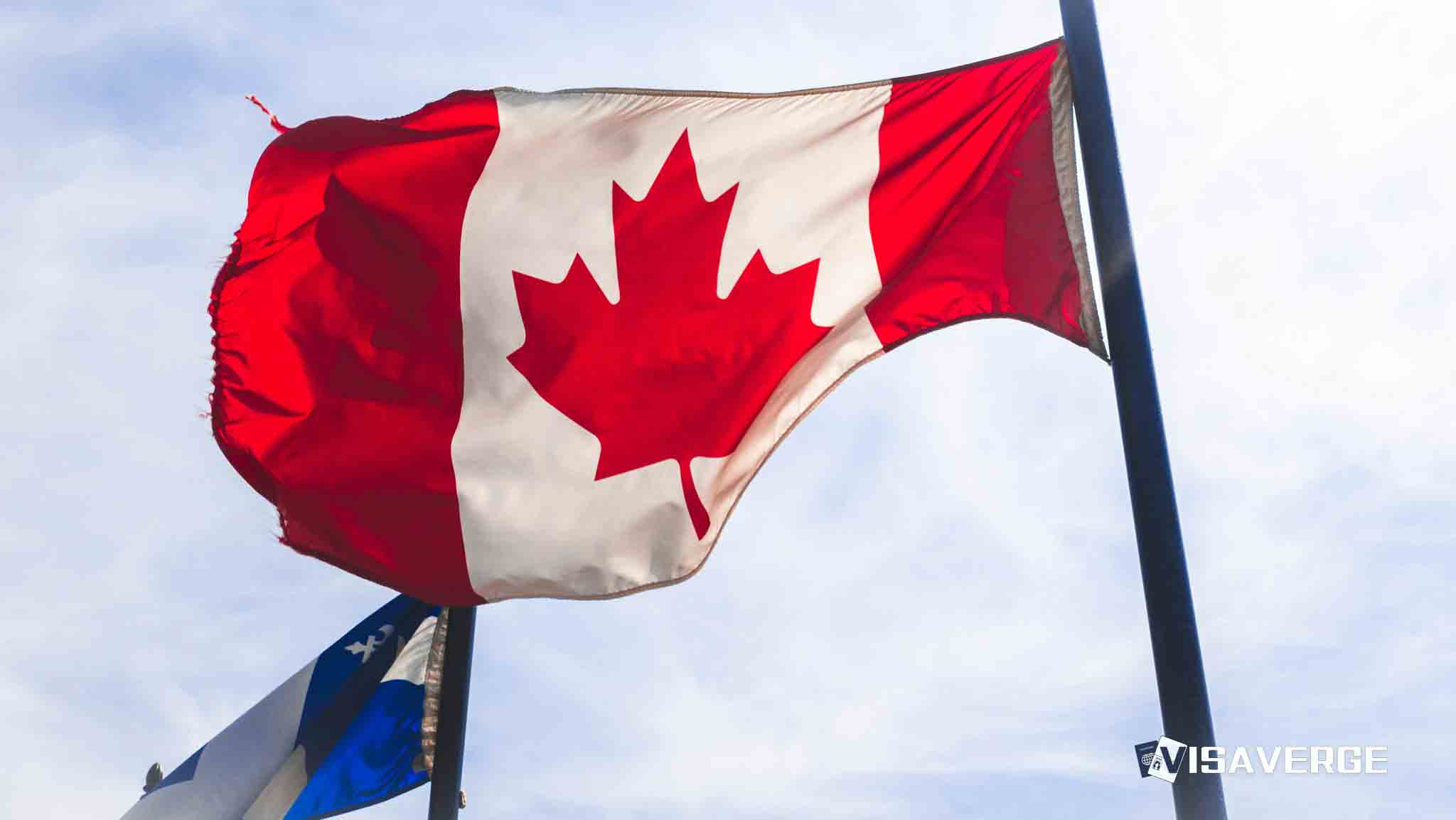Key Takeaways
• France revoked visa exemptions for Algerian diplomatic and service passport holders on May 17th, causing diplomatic backlash.
• Algeria plans reciprocal restrictions for French officials, escalating tensions rooted in migration and consular disputes.
• 84% of French citizens now support stricter visa rules for Algerians, influencing government policy and bilateral negotiations.
Algeria has forcefully condemned France’s recent decision to cancel visa exemptions for holders of Algerian diplomatic and service passports. Algerian officials have described this step as a major breach of diplomatic customs and agreements between the two countries. This episode comes at a time when relations between Algeria 🇩🇿 and France 🇫🇷 have already been getting worse over several years, mainly due to disagreements about migration, consular issues, and other political topics.
Algeria’s main complaint centers on how France handled the cancellation. Instead of discussing the matter directly with Algeria through official channels, France’s decision became known through the press. Algerian authorities argue that such an approach shows a lack of respect and breaks both international diplomatic rules and a 2013 deal which allowed Algerian officials with special passports to enter France without needing a visa.

How Did the Situation Unfold?
The Algerian Foreign Ministry has voiced strong disappointment about France’s way of communicating this important change. Despite making several requests, Algerian officials say they got no formal notice from Paris. The French representative in Algiers, called the chargé d’affaires, reportedly could not provide any solid explanation even after being called in repeatedly by Algerian officials.
Algeria also denies French claims about the background of the agreement. French officials said that Algeria had either broken the old agreement or wanted it changed. However, Algeria says these claims are false. According to statements from Algiers, it was always France that pushed for visa exemptions. The first such offer came from France in 1986, which Algeria turned down. Later, France suggested limited visa-free access for Algerian diplomats in 2007, and then broader exemptions in 2013. Every step, Algeria insists, began with France, not Algeria.
Faced with France’s sudden move, Algeria quickly announced its own plans to respond. Since Algeria sees the visa exemption as no longer a shared deal, officials say they will apply “reciprocal measures.” This means that French diplomats holding similar passports will face restrictions traveling to Algeria. The idea is to match France’s actions so that diplomatic balance is kept.
Why Is This Visa Exemption Issue So Important for These Countries?
Visa exemptions for diplomatic or service passport holders are not just simple travel perks. They help officials travel quickly and easily, which can keep communication between countries running smoothly. For many governments—especially those with close or complicated ties—these special exemptions act as a sign of trust.
When France decided to end this exemption without consulting Algeria, Algerian leaders felt it undermined years of careful agreement. In their view, these kinds of changes should only happen after full talks and only when both sides agree.
The collapse of the visa exemption plan comes on top of a long series of setbacks in Franco-Algerian relations. In recent months, both Algeria and France have kicked out each other’s diplomats. These actions were triggered by claims of wrongdoing, such as using fake passports and taking “irregular positions.” There are also deep disagreements on international issues, such as the future of Western Sahara, which further strain their relationship.
Migration Disputes at the Heart of the Conflict
While the battle over visa exemptions is making headlines, the bigger fight is about migration. France has criticized Algeria for years for not taking back Algerian citizens who are told to leave France. French authorities often complain that some of these people pose security risks or have broken French laws, but Algeria refuses to accept them back.
Partly in response, France has tightened its visa rules for Algerians. There are also broader calls, mostly from French politicians, to end migration deals entirely with Algeria. Some members of the French Senate have pushed for tougher rules, arguing that old agreements give Algerians unfair advantages in coming to France.
These political struggles have fueled negative opinions among ordinary people as well. Recent data shows that 84% of French citizens now support harder visa rules for Algerians. This public mood is shaped by news stories about Algerians living in France without permission and growing worries over security.
How Is France Putting These New Rules into Action?
Recent official orders in France tell border guards to deny entry and quickly send back any Algerian diplomats or officials who try to enter France without a visa. Reports say these instructions went into effect as of May 17th. This is a major break from normal practice, as diplomatic passport holders had previously moved between the countries much more freely.
The French government calls this a “graduated response,” meaning it will increase pressure step by step. French officials link their actions directly to Algeria’s refusal to accept some deported citizens and to recent expulsions of French diplomats by Algeria.
Algerian reactions came quickly. The Ministry of Foreign Affairs in Algiers said bluntly that France is acting alone and breaking its word:
“The [Algerian] Ministry [of Foreign Affairs] concluded that France appears set on unilaterally suspending the agreement while trying to evade responsibilities… [and] will respond with strict reciprocity proportional to this breach.”
This message makes it clear that Algeria will copy whatever steps France takes to ensure French officials are treated in the same way.
Deep Historical Tensions Influence Every Step
Franco-Algerian ties have always been shaped by their shared and sometimes troubled past. Algeria was a French colony for more than 130 years before gaining independence in 1962 after a bloody conflict. Since then, relations between the two countries have swung between moments of close cooperation and periods of mistrust.
For many Algerians, having the freedom to travel easily to France—whether as students, businesspeople, or officials—is about more than just convenience. It is also connected to history and shows whether France and Algeria can move beyond their past.
When France cancels a visa exemption without warning, it touches on old wounds. Algerian leaders respond strongly not just to protect their diplomats, but to defend national pride and show their country will not accept unfair treatment.
Impacts on Diplomatic and Everyday Ties
When tensions between Algeria and France rise at the official level, ordinary citizens feel the effects in daily life. People who want to visit family, do business, or study across borders may find it harder to get the documents they need. The moves between both governments might also slow down cultural or educational exchanges, making it more difficult for people on both sides to work together.
Businesses with ties to both countries might also face extra checks, delays, or costs tied to new visa rules. For Algerian government workers or officials hoping to visit France, last-minute travel suddenly becomes far more complicated. The same will now apply to French officials going to Algeria under the new reciprocal rules.
VisaVerge.com’s investigation reveals that such tit-for-tat measures rarely settle longstanding issues, but they do set the tone for future diplomacy. Unless relations improve, we may see similar measures pop up in other parts of the relationship, further reducing trust.
What Happens Next?
At the moment, neither Algeria nor France seems ready to back down. Both governments are sticking to their positions and have shown they are willing to match each other step for step. Unless something changes, these actions could push the two countries even further apart.
Some experts say the only way forward is through renewed talks. Mediation, possibly with help from another country or group, could offer a way out. Without dialogue, the risk is that both countries will keep taking actions that make future cooperation even more difficult.
For now, the thousands of people who live between Algeria and France—and rely on the visa exemption system—face an uncertain future. Whether they are diplomats, students, or everyday travelers, the rules have changed overnight.
Broader Implications for Migration in Europe and North Africa
What happens between Algeria and France will also shape how other countries handle migration, security, and diplomacy. European governments are closely watching France’s tougher stance; they may consider similar steps if disputes with other migrant-sending countries flare up.
At the same time, North African governments may rethink deals with European countries. If they see that agreements can be scrapped with little warning, trust between continents may break down further.
Where to Go for More Information
If you are affected by changes in the visa exemption policy or want official updates on the rules for Algerian passport holders entering France, consult the French Ministry of Foreign Affairs’ official page. This site provides the latest entry requirements, including special steps for diplomatic and service passport holders. For updates on Algeria’s approach, the Algerian Ministry of Foreign Affairs regularly posts statements on its website.
Key Takeaways
- France’s sudden cancellation of visa exemption for Algerian diplomatic and service passport holders breaks with past cooperation and long-standing agreements.
- Algeria strongly objects and promises to respond by applying the same restrictions to French officials.
- The visa exemption fight is only the latest flashpoint in a complicated, often tense relationship covering migration, diplomatic disputes, and historical issues.
- Ordinary travelers, students, and businesspeople will likely face tougher rules and more delays as a direct result.
- 84% of French citizens now support harder visa rules for Algerians, showing how public opinion is shaping policy ahead of elections.
- Both sides signal that they are unwilling to back down, making the outlook for quick resolution very poor.
The events around Algeria and France’s visa exemption disagreement show how complex and sometimes fragile diplomatic ties can be. As both countries weigh their next steps, the outcome will have lasting effects not only for their own citizens but for migration and international relations across Europe and North Africa. Staying informed through trusted sources, including VisaVerge.com, and official government pages is important as the situation continues to change.
Learn Today
Visa Exemption → A policy allowing certain passport holders to enter a country without needing to apply for a visa in advance.
Diplomatic Passport → A special passport issued to government diplomats for official international travel, often granting extra privileges.
Reciprocal Measures → Actions taken by one country to match or mirror restrictions or policies imposed by another country.
Chargé d’affaires → The acting head of a diplomatic mission when the ambassador is absent or when the post is vacant.
Bilateral Agreement → A formal agreement between two countries establishing rules or cooperation in areas such as travel or migration.
This Article in a Nutshell
France’s abrupt cancellation of visa exemptions for Algerian diplomats marks a turning point in troubled Franco-Algerian relations. Algeria responded with reciprocal measures. The dispute, fueled by migration and diplomatic disagreements, leaves thousands facing new travel hurdles. Both nations’ hardline stances make resolution unlikely, impacting international migration policy across Europe and North Africa.
— By VisaVerge.com
Read more:
• WestJet expands Air France codeshare, boosting Europe travel options
• Air France Brings Orlando–Paris Nonstop Back After 13 Years
• Air France-KLM Vows ‘Aggressive’ Tariffs Fightback
• France pledges to increase Indian student enrollment by 2030
• Air France Halts Sahel States Flight Comeback Again













